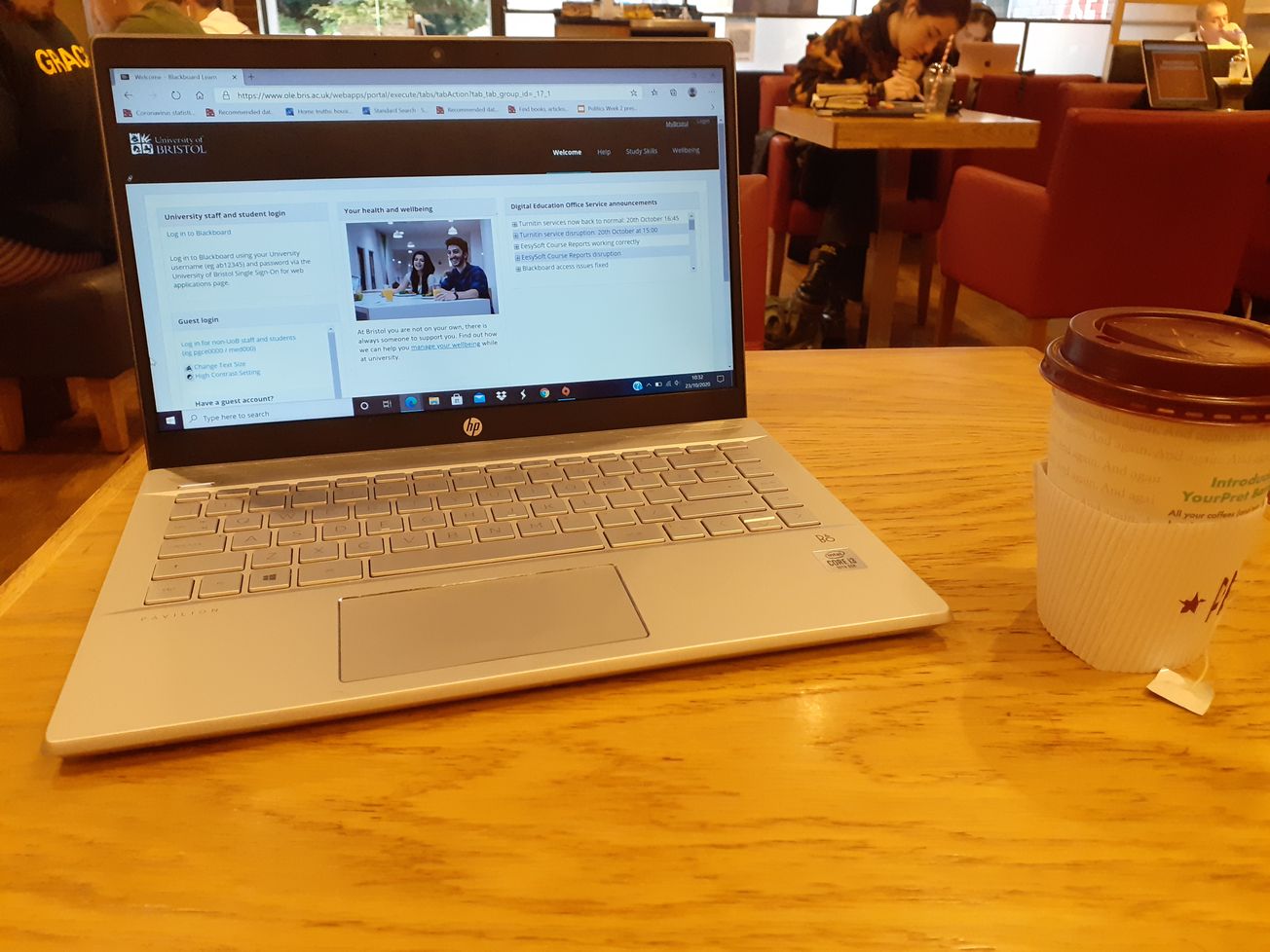By Emily Johnstone, PhD, Cyber Security
The ‘new normal’ of online learning has taken full swing, and students across the nation have enrolled at the Universities of Zoom, Microsoft Teams and Slack. While virtual learning provides opportunities for connection and collaboration, it has also left students in some very awkward situations.
Picture this - with everyone stuck at home: shower battles, toaster turf wars and a race to find the best study space have taken over the morning routine. Although you have a lecture soon, you try not to stress about the house resembling a disaster-zone, until you are asked to turn on your camera.
In one click, your student house - complete with the piles of coffee cups, takeaways and a hungover housemate roaming around in their dressing gown - is on view to your entire cohort and lecturer. Scenarios like these leave us debating the following issue: ‘should students be forced to switch on their cameras during lectures?’
In a year that we never anticipated, online lectures have blurred the boundary between University and home life. Staff and students have been given a window into our lives that used to be relatively private.
However, when we start judging others on their home environments, we are forgetting that the pandemic has not affected everyone equally.
Socioeconomic barriers can seem more obvious when students are asked to turn on their cameras. Many students share study spaces with their flatmates and others are juggling learning with child-care responsibilities.
Online learning has left people feeling more awkward than connected
Forcing students to switch on their cameras creates another issue: sometimes poor connection means that video options are simply not possible. Calling students out for turning their cameras off creates unnecessary financial pressures, as not everybody is in a position to upgrade their WiFi.
It also has not been easy for everyone to embrace video calls. In some cases, online learning has left people feeling more awkward than connected.
Being seen on other people's screens can feel very exposing and uncomfortable. With hall eyes on you, it comes as little surprise that some students feel more comfortable speaking with their cameras switched off.
Privacy concerns can also be directed towards the companies running our virtual learning platforms
As much as some students struggle with the camera on, we should be mindful that others struggle with the camera off. Lip-reading, gestures and body language can make lectures more accessible for students with disabilities. Therefore, striking a balance is really important to ensure everyone feels confident and comfortable to contribute.
Privacy concerns can also be directed towards the companies running our virtual learning platforms. At the beginning of this month, a virtual talk organised by St Mary’s LGBT+ Association was hijacked by abusive callers.
Sadly, this is not an isolated incident and students using virtual platforms remain relatively unprotected by the technology companies who run them. Therefore, the decision to switch on a camera can be risky, as privacy can be invaded by individuals and groups outside of the lecture itself.
All University of Bristol teaching to move online from 3 December
Opinion | Students should simply not be paying their full fees this year
Ultimately, there is nothing wrong with lecturers encouraging students to turn on their cameras. However, if we consider the range of student circumstances and experiences, this encouragement should not be enforced.
Although lecturers may be concerned about participation, there are more creative solutions than mandating that cameras should be switched on. Alternatives include chat functions, real-time polls and discussion forums, which promote engagement and conversation.
As the pandemic pushes us to find new ways of navigating our daily lives, we cannot let the charm of creating a sense of normality outweigh the importance of our privacy and wellbeing. During this period of uncertainty, we have to challenge what becomes the ‘new normal’.
Featured Image: Epigram / Molly Pipe
Do you find online lectures somewhat intrusive?









